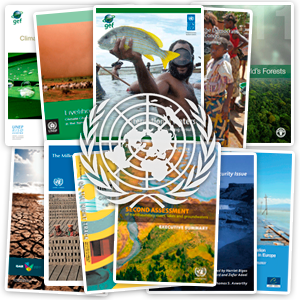- ON THE DECADE
- THE DECADE'S CAMPAIGN
- REPORTING ON PROGRESS
- THE DECADE'S PROGRAMMES
- FOCUS AREAS
-
- Access to sanitation
- Financing water
- Gender and water
- Human right to water
- Integrated Water Resources Management
- Transboundary waters
- Water and cities
- Water and energy
- Water and food security
- Water and sustainable development
- Water and the green economy
- Water cooperation
- Water quality
- Water scarcity
- FOCUS REGIONS
- RESOURCES FOR
- UN e-RESOURCES
IN FOCUS
We’re finally at the end of the UN Decade for Water 2005-2015 – It is time to say good-bye
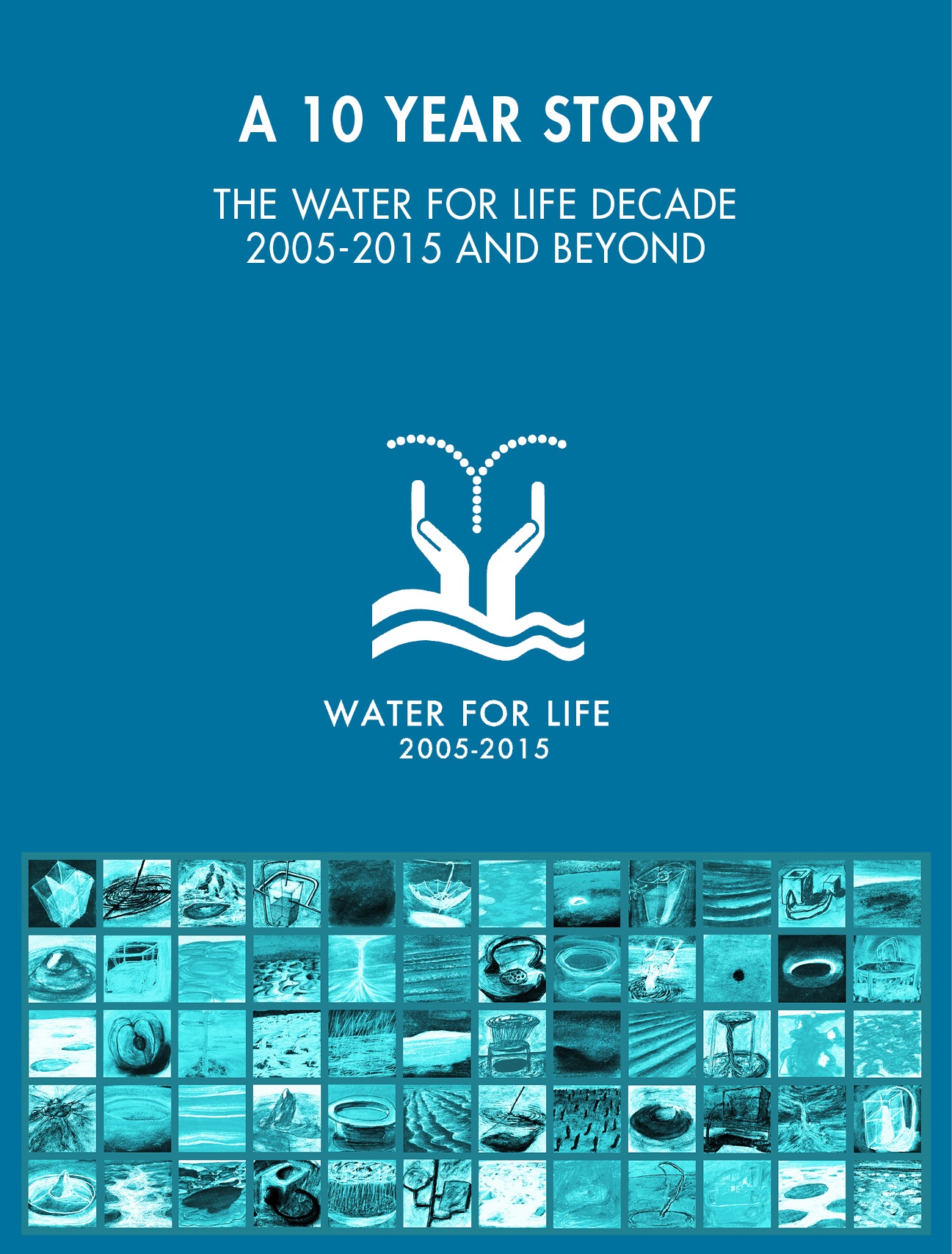
After 10 years, we’re finally at the end of the UN Water for Life Decade 2005-2015.
Since 2005, we have been managing complexity on a global scale. Interactions have increased exponentially thanks to social media and the Internet; but we can’t help but regret the missed opportunities. There were many. And now we have a full stop.
Our goal during the Water for Life Decade was to promote efforts to fulfill international commitments in the water sphere by 2015. We’ve tried to raise the profile of water in the global agenda, and to focus the world’s attention on the groundbreaking, lifesaving, empowering work done by those implementing water programs and projects. We’ve tried to be a bridge, to further cooperation between governments and other stakeholders, between nations and diverse communities, between economic interests and the needs of ecosystems and the poor. And we’ve promoted efforts to ensure the participation of women in water and sanitation. We’ve done all this to contribute to achieving the water goals of the Millennium Declaration, the Johannesburg Plan of Implementation of the World Summit for Sustainable Development and Agenda 21.
For almost as long as we can remember, 2015 has been considered a critical year for the international water and sanitation agenda. Not least because we anticipated – and it has come to pass – that the General Assembly has agreed the Sustainable Development Goals in its 70th session.
In September 2015, the General Assembly finally agreed on a stand-alone water goal (number 6), “Ensure the availability and sustainable management of water and sanitation for all.” This reflects that water and sanitation has become a key priority for member states. UN and stakeholders, experts and the water community at large have contributed, engaging with politicians, policy makers, governments and water managers in water and sanitation programs and projects, in knowledge generation and management, in advice based on good practices and appropriate technologies.
The decade has been one of progress and many have contributed. The activities of the UN office to support the International Decade for Action "Water for Life" 2005-2015 of the knowledge hub, best practice programmme, communications, are being integrated in its work by the UN-Water technical advisory unit. We are especially proud of the activities of the civil society and of the UN-Water for Life Award winners. The Water for Life logo users and the partnerships which the decade has helped boost and create will respond to the challenge of the 2030 Sustainable Development Agenda of the need to be transformative and to bring about change. A call for Business “unusal”. The Canadian Water for Life Partnership, the Cultivating Water for life global partnership, the work of the Women for Water Partnership to cite a few with take the torch and continue with the spirit which has guided the Office´s actions.
Their work is necessary because 663 million people still drew water from an unimproved source in 2015, and for these people our statistics mean nothing. From 1990 to 2015, 2.1 billion people gained access to a latrine, flush toilet or other improved sanitation facilities, helping to comprise a total of 68% of the global population. Yet we missed the MDG target for sanitation by 9 percentage points. We have to keep working.
It is time to say good-bye to the Office to Support the Water for Life Decade 2005-2015
The Water Decade is concluding with a slew of awards as well as feedback from the journalist groups supported through the media programme and from those who have engaged in the Office work. The Office has been honoured with the iAgua award for 2015, the second consecutive time the Office has taken this prestigious prize, on December 17. The Office has also been honoured with the Aragonia Prize on December 19 in Zaragoza.
In late November we reached out to the journalists who have been supported in their work in the water sector during the Decade. 86% of water journalists we worked with said the Office had made a ‘significant’ difference to their work with regards to gathering information and contacts for stories. While the media programme has been a work in progress throughout the Decade, many journalists sent personal messages urging the United Nations to keep “the network alive through information, discussions etc”, and imploring the function to not “cut the line. Continuously link up and working with journalists which has been part of the programme could be helpful.”
We have received more than a 100 responses to the survey analysis of the Office – to gather the expert view of the role of the Office in the MDG period. Respondents have said that the Office website has proved a vital water hub and resource according to the top minds in the field. According to a survey of the Decade’s Office web products, the thematic pages (80%), regional focus (92%), online resources (85%), milestones (92%) and reports on progress (93%) have been considered specially useful. The Office “Facilitated access to relevant knowledge and activities in the UN” (75%), “Provided a platform for participatory consultation processes with major partners and practitioners” (84%), “Involved meaningful processes and activities” (75%), “Encouraged open and reflective dialogue, inclusive and respectful of diversity” (83%).
“The inclusiveness and level of engagement is unique in UN conferences. True acknowledgement of the different stakeholders.”
Warm thanks and best wishes to all of you who helped make the Decade one of progress in the water sector. I wish you and yours a happy and prosperous years, continuing our vital work in the service of sustainable development.
Good Bye
The Team of the United Nations Office to Support the International Decade for Action “Water for Life” 2005-2015
>> See "A ten-year story"
>> See "A ten-year story" video summary
The High-Level International Conference on the implementation of the International Decade for Action "Water for Life", 2005-2015 ends with a call for a new Decade on Water for Sustainable Development
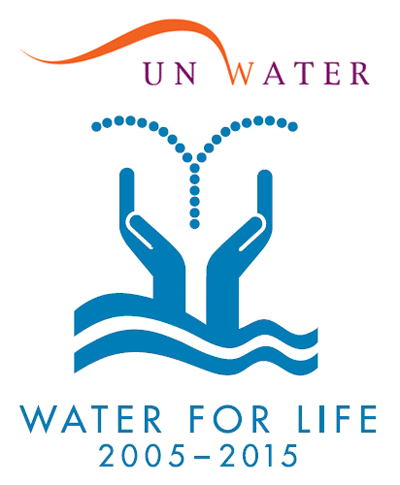
Date: 9-11 June 2015
Place: Dushanbe, Tajikistan
Organisers: Government of the Republic of Tajikistan in cooperation with other partners
The High-Level International Conference on the implementation of the International Decade for Action "Water for Life", 2005-2015 had as primary goal a comprehensive discussion of the issues of implementation of the International Decade for Action "Water for Life", 2005-2015, and has played a crucial role in conducting a comprehensive review of the implementation of the International Decade. UNW-DPAC is part of the International Steering Committee of the High-Level International Conference whose meeting was on 7 June 2015. Heads of state and United Nations leaders gathered last week in Dushanbe, Tajikistan to evaluate the achievements of the Decade for Action: Water for Life 2005-2015, and to begin looking at proposals for moving forward with the Decade’s work. Looking to the future, His Excellency Emomali Rahmon, President of the Republic of Tajikistan, announced a new International Decade for Action under the motto ‘Water for Sustainable Development’, as an important tool for promoting the implementation of sustainable development goals related to water.".
>> See Conference programe and materials
>> See the Dushanbe Declaration
>> See UN-DESA news
>> See other audiovisual materials
Special Rapporteur to address Human Rights Council
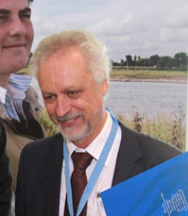
Leo Heller, Special Rapporteur for the Human Right to Water and Sanitation, will present a report to the Human Rights Council in Geneva, mid-September 2015. The main report will focus on Affordability of Water and Sanitation Services, while an addendum will be concerned with Mandate Priorities.
Mr Heller will also take this opportunity to present the findings of his predecessor, Catarina De Albuquerque, on her country mission to Kenya.
Special Rapporteur to address General Assembly
Leo Heller, Special Rapporteur for the Human Right to Water and Sanitation, will present a report to the General Assembly in New York on Different Types of Water and Sanitation Services from a Human Rights Perspective, late October 2015.
In September, this report will be available online at this link: http://www.ohchr.org/EN/Issues/WaterAndSanitation/SRWater/Pages/AnnualReports.aspx
#Keep informed!

The Decade’s Weekly says goodbye with a special issue on the key milestones of the last months of the Water Decade
Welcome to the Special Issue of the Decade’s Weekly! The Decade’s Weekly has been one of the major communication products of the United Nations Office in support of the international Decade for action: ’Water for Life, 2005 - 2015’. Launched in May 2013, the Decade’s weekly has brought subscribers every week the latest updates from the Decade as well as news and events on water and sanitation from the United Nations system. For your support during these years, thank you! In this last and special edition, the UN-Water Decade Programme on Advocacy and Communication (UNW-DPAC) has prepared for you the key milestones of the last months of the International Decade for Action ’Water for Life’ 2005-2015, from March to December 2015. You may also access the complete picture of the Decade’s milestones from 2003-2015 in our webpage!
Keep informed! You can continue to keep up with the updates on news, events and publications through the UN-Water website. In addition, the UNW-DPAC website will be updated with information on activities of the Office.
End of Decade's Milestones
High-level Interactive Dialogue on the Water for Life Decade: Progress achieved and lessons learned
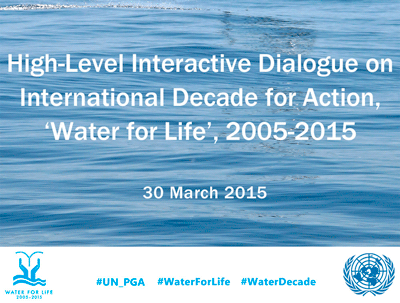
Date: 30 March 2015
Place: UN Headquarters, New York, USA.
Organisers: President of the United Nations General Assembly (UNGA), UN-Water
On 19 December 2014 the UN General Assembly adopted the resolution (A/RES/69/215) on the ’International Decade for Action, «Water for Life», 2005-2015’, calling to evaluate progress achieved in the implementation of the Decade and continue taking steps for achieving internationally agreed water-related goals. The resolution also invited the President of the UN General Assembly to convene a High-level Interactive Dialogue on the theme ’The International Decade for Action: Progress achieved and lessons learned relevant to the achievement of sustainable development'. The dialogue will review progress achieved and gaps in the implementation of the Decade and will reflect on lessons learned that can contribute to a comprehensive approach to sustainable management of water and sanitation in the post-2015 development agenda. The event will feature a plenary segment and a high-level, interactive, multi-stakeholder panel discussion on the theme ’Carrying lessons learned from the Decade into the post-2015 development agenda'. It will result in a President's summary that will be circulated to Member States and other stakeholders. The UN Water Decade Programme on Advocacy and Communication (UNW-DPAC) will moderate the interactive discussion on good practices with regards to means of implementation and partnerships.
>> Visit the event website
>> Provisional programme >> Background document
>> Background document 
Intergovernmental Negotiations on Post-2015 Development Agenda - On Means of Implementation and Global Partnerships
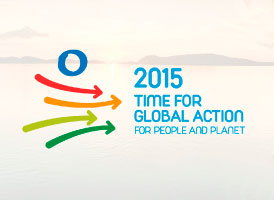
Date: 20-24 April 2015
Place: New York
Organiser: Office of United Nations General Assembly (UNGA) President
The United Nations is in the process of defining a post-2015 development agenda to be launched at a Summit in September 2015, which is the target date for realizing the Millenium Development Goals (MDG). The intergovernmental negotiations on post-2015 development agenda are taking place over several sessions from January 2015. The upcoming 4th session will focus on the means of implementation and global partnerships for sustainable development.
>> More information
>> Read more about the previous sessions
Intergovernmental Negotiations on Post-2015 Development Agenda - On Follow up and Review

Date: 18-22 May 2015
Place: New York, U.S.A.
Organiser: Office of United Nations General Assembly (UNGA) President
The intergovernmental negotiations on post-2015 development agenda will take place over several sessions starting in January 2015. The 5th session of the intergovernmental negotiations will focus on follow-up and review.
>> More information
>> Learn more about the process
High-level International Conference on the Implementation of the Water for Life Decade
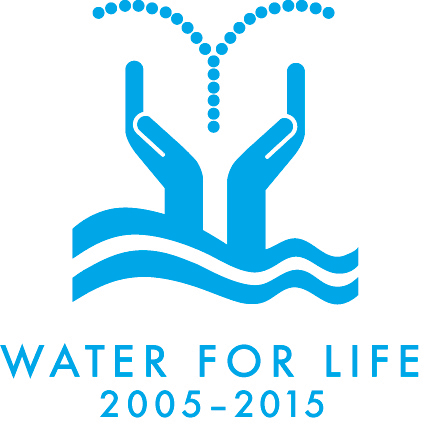
Date: 9-11 June
Place: Dushanbe, Tajikistan
Organisers: Government of the Republic of Tajikistan in cooperation with UN-Water and other partners
The UN General Assembly resolution (A/RES/69/215) on the ’International Decade for Action, «Water for Life», 2005-2015’ included the convening of a High-level International Conference on the implementation of the Decade. The Conference provides an opportunity to discuss the challenges and gaps in the implementation of the International Decade and on this basis, recommendations will be elaborated for further action to be taken after 2015, including contributing to the development of the Sustainable Development Goals related to water resources. The conference program will include a variety of activities, including plenary and thematic sessions, sessions on regional perspectives, an exhibition and a tour. The Tajikistan Conference is open to all stakeholders for conducting side events.
>> Visit the Conference’s website!
>> Read the 1st announcement of the Conference
3rd International Conference on Financing for Development
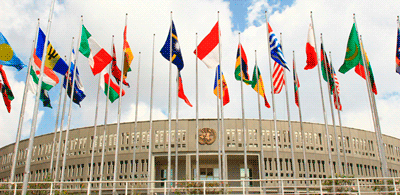
Date: 13 to 16 July 2015
Place: Addis Ababa, Ethiopia
Organiser: President of the UN General Assembly, UN Economic and Social Council, Government of Ethiopia
The 3rd International Conference on Financing for Development will focus on:(1) assessing the progress made in the implementation of the Monterrey Consensus and the Doha Declaration and identifying obstacles and constraints encountered in the achievement of the goals and objectives agreed therein, as well as actions and initiatives to overcome these constraints;(2) addressing new and emerging issues, including in the context of the recent multilateral efforts to promote international development cooperation, (3) reinvigorating and strengthening the financing for development follow-up process. The Conference will gather high-level political representatives, including Heads of State and Government, and Ministers of Finance, Foreign Affairs and Development Cooperation, as well as all relevant institutional stakeholders, non-governmental organizations and business sector entities. The event will result in an intergovernmentally negotiated and agreed outcome, which should constitute an important contribution to and support the implementation of the post-2015 development agenda.
>> Learn more
>> More information
>> UN General Assembly resolution on Modalities for the 3rd International Conference on Financing for Development (A/RES/68/279)
United Nations Summit to adopt the post-2015 development agenda

Date: 25 - 27 September
Place: New York, USA.
Organiser: Office of United Nations General Assembly (UNGA) President
The post-2015 development agenda will be launched at the Summit in September 2015, which is the target date for realizing the MDGs. It is currently being elaborated through informal consultations of the UN General Assembly. The President of the General Assembly has appointed two Co-facilitators to lead those informal consultations. The process of arriving at the post 2015 development agenda is Member State-led with broad participation from Major Groups and other civil society stakeholders. There has been numerous inputs to the agenda, notably a set of Sustainable Development Goals (SDGs) proposed by an open working group of the General Assembly (GA), the report of an intergovernmental committee of experts on sustainable development financing, GA dialogues on technology facilitation and many others. The UN Summit to adopt the post-2015 development agenda was mandated by the UN General Assembly in September 2013 (Resolution 68/6) . The Summit will be convened as a high-level plenary meeting of the General Assembly, per Resolution 69/244 of December 2014.
>> More information
United Nations Framework Convention on Climate Change COP 21 / CMP 11
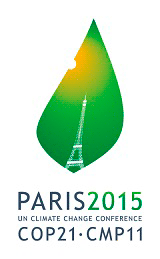
Date: 30 Nov - 11 Dec 2015
Place: Paris, France
Organiser: Secretariat of the United Nations Framework Convention on Climate Change
Water is the primary medium through which climate change influences Earth’s ecosystem and thus the livelihood and well-being of societies. France will be hosting and presiding the 21st Session of the Conference of the Parties to the United Nations Framework Convention on Climate Change and the 11th session of the Conference of the Parties serving as the meeting of the Parties to the Kyoto Protocol (COP21/CMP11), otherwise known as ’Paris 2015’ from 30 November to 11 December 2015. COP21 will be a crucial conference, as it needs to achieve a new international agreement on the climate, applicable to all countries, with the aim of keeping global warming below 2oC. The United Nations Framework Convention on Climate Change (UNFCCC) was adopted during the Rio de Janeiro Earth Summit in 1992. It entered into force on 21 March 1994 and has been ratified by 196 States, which constitute the ’Parties’ to the Convention - its stakeholders. The Conference of the Parties (COP), made up of all ’States Parties’, is the Convention’s supreme decision-making body. It meets every year in a global session where decisions are made to meet goals for combating climate change.
>> Access the Conference website
>> Learn more at the United Nations Climate Change Newsroom
>> Water Events at COP21
ARCHIVES
>> Water for Life Voices campaign
>> Submit your voice!
>> Your #WaterForLifeVoices on Flickr
![]() Flickr
Flickr
![]() Slideshare
Slideshare
![]() Twitter
Twitter
![]() YouTube
YouTube

>> Outcome Document from OWG on Sustainable Development Goals
>> A Post-2015 Global Goal for Water: Synthesis of key findings and recommendations from UN-Water 
>> Post 2015 Water Thematic Consultation Report
>> Report of the High-Level Panel of Eminent Persons on the Post-2015 Development Agenda
>> UN-Water section on water in the post-2015 process
>> UN post-2015 agenda
>> DESA section on Post-2015
>> JMP Post-2015 global monitoring
>> Sustainable Development Goals e-Inventory
>> Summary of Stock taking meeting of Intergovernmental Negotiations on the Post-2015 Development Agenda
>> Synthesis Report of the Secretary-General on the Post-2015 Agenda
>> Decade's weekly
The Decade's weekly brings you every week the latest news from the Decade.
>> Bimonthly Publications Review 25, 26 and 27 [ - 546 Kb]
- 546 Kb]
UNW-DPAC. May 2015
>> Previous issues
Sustainable Development
15-17 January 2015: UN-Water International Zaragoza Conference ‘Water and Sustainable Development: From vision to action’
22 March 2015: World Water Day on Water and Sustainable Development
Biodiversity
2011-2020: UN Decade on Biodiversity
Deserts and Desertification
2010-2020: UN Decade for Deserts and the Fight Against Desertification
Energy
2014-2024: Decade on Sustainable Energy for All
22 March 2014: World Water Day on 'Water and Energy'
Sanitation
2011-2015: Sustainable sanitation: The Five-Year-Drive to 2015
19 November 2014: World Toilet Day
Copyright | Terms of use | Privacy notice | Site Index | Fraud alert | Help









